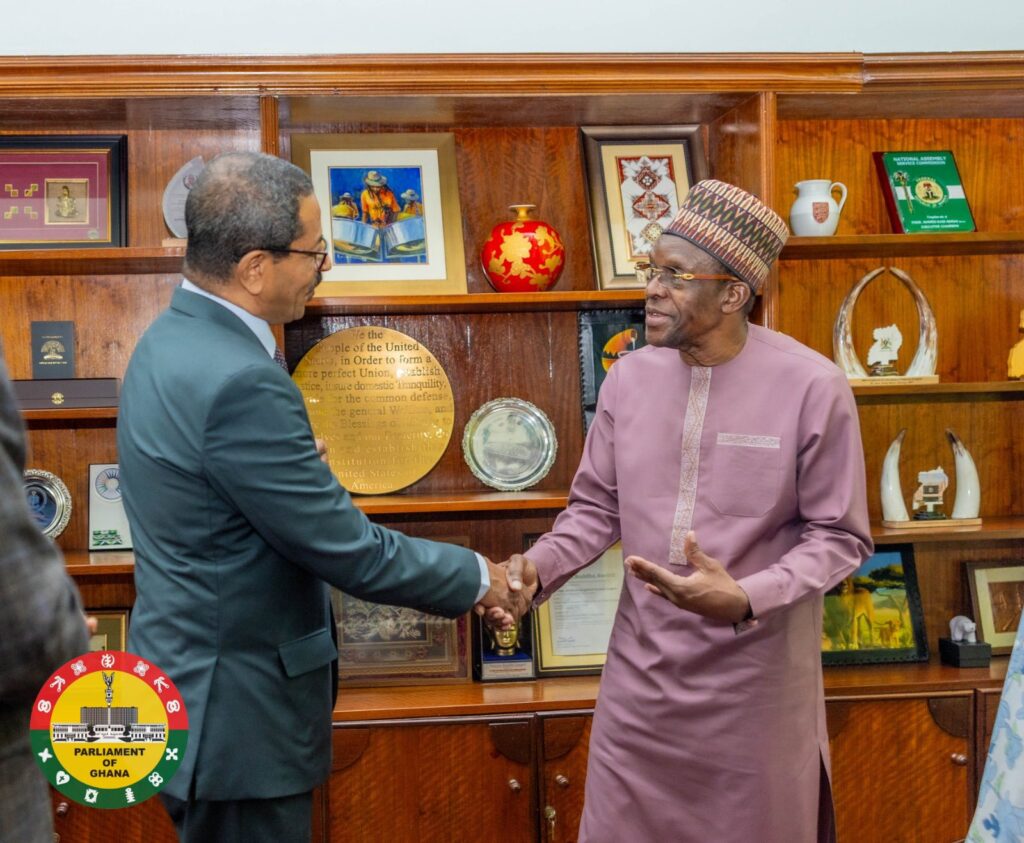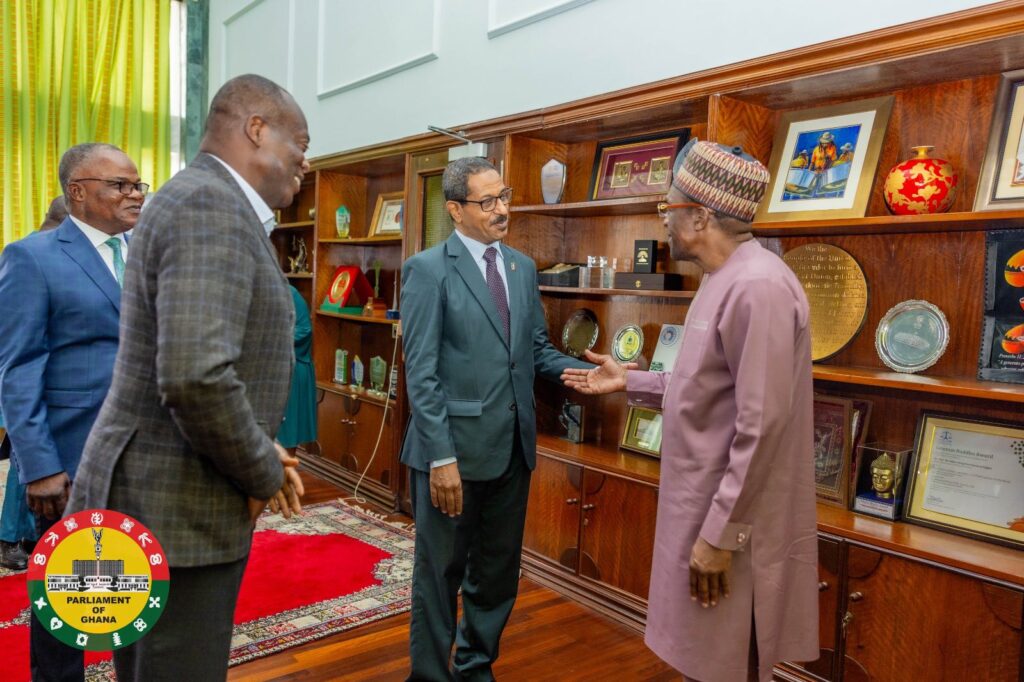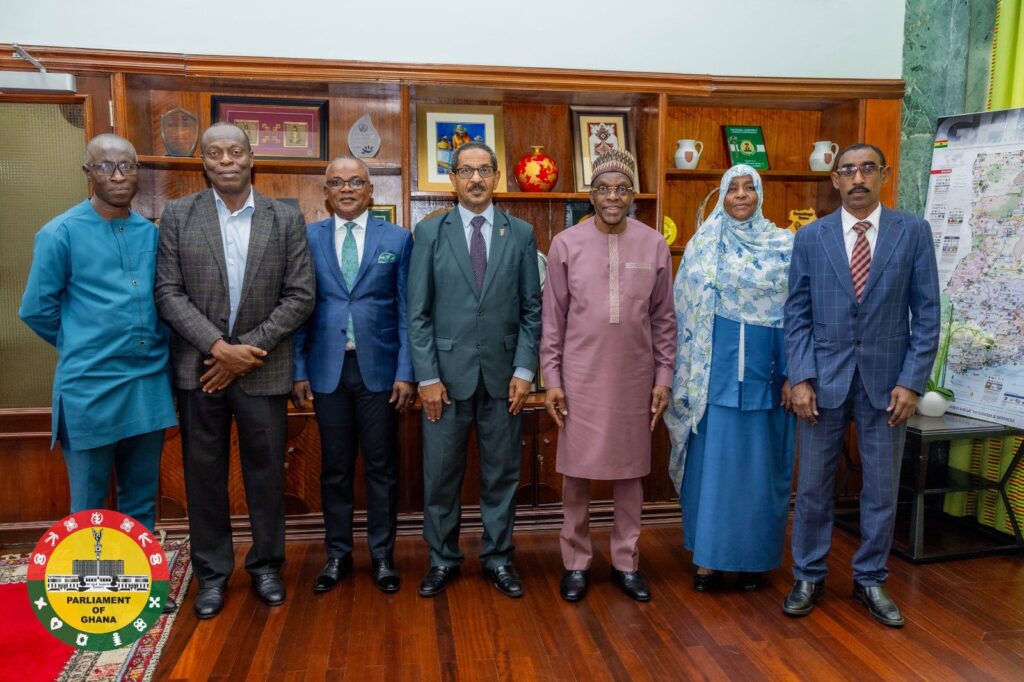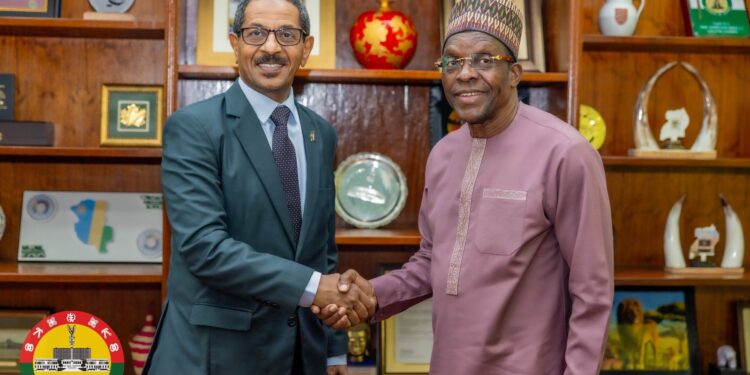The Sudanese Ambassador to Ghana, H.E. GARIBALLA KHIDIR ALI, has paid a courtesy call on the Speaker of Parliament, Rt. Hon. Alban Sumana Kingsford Bagbin, to seek Ghana’s support amid the ongoing conflict in Sudan.
During the meeting, the Ambassador expressed appreciation for Ghana’s long-standing reputation as a beacon of democracy and peace on the African continent.
He noted that in times of crisis, Ghana remains a trusted ally and a reliable source of help.
He expressed optimism that, with the collective support of African nations, Sudan would be able to restore peace and stability.
“We are open to African-led initiatives and solutions, and we believe Ghana can play a pivotal role in this process,” he said.





In response, the Speaker thanked the Sudanese delegation for their confidence in Ghana’s leadership and reaffirmed the country’s solidarity with the people of Sudan.
He emphasised that Sudan remains a strategic partner in Africa’s development, adding that instability in Sudan affects the continent as a whole. “It will take a collective African resolve to bring lasting peace to the region,” the Speaker stated.
The Speaker further pledged Ghana’s support through peacebuilding initiatives, technical cooperation, advocacy, training, and parliamentary diplomacy aimed at promoting stability and unity in Sudan.
Read more news on atlfmnews.com
Source: Parliament of Ghana

























